03—
Dr David Hobbs’ motto is always say “yes” when an opportunity presents itself.
Throughout his research project at Flinders University, he has taken every opportunity to meet and speak to groups of people—whether they are clinicians in a hospital, his children’s school, or local Parkinson’s support groups. He’s appeared on Channel 7’s news program and given a TEDx Talk. With each opportunity, David is happy to hear comments, questions and feedback. On two occasions, what was said changed the trajectory of his research. At one presentation, clinicians in the crowd asked: “Have you thought about trialling Orby with people who’ve had a stroke?” and “Have you considered how Orby could help people who have Parkinson’s?”
Stroke and cerebral palsy have many overlaps since cerebral palsy is often caused by stroke—it’s just that the brain is underdeveloped in a foetus or infant, whereas adults have developed neural pathways. The OrbIT gaming system has the ability to help adults recovering from stroke to build new pathways in the same way it helps children with cerebral palsy. After the success of the cerebral palsy trial, David and the team moved straight onto a second trial for people with stroke.
Dr David Hobbs shares one of his favourite memories from his research in a TEDx Talk in Melbourne. Watch the clip.
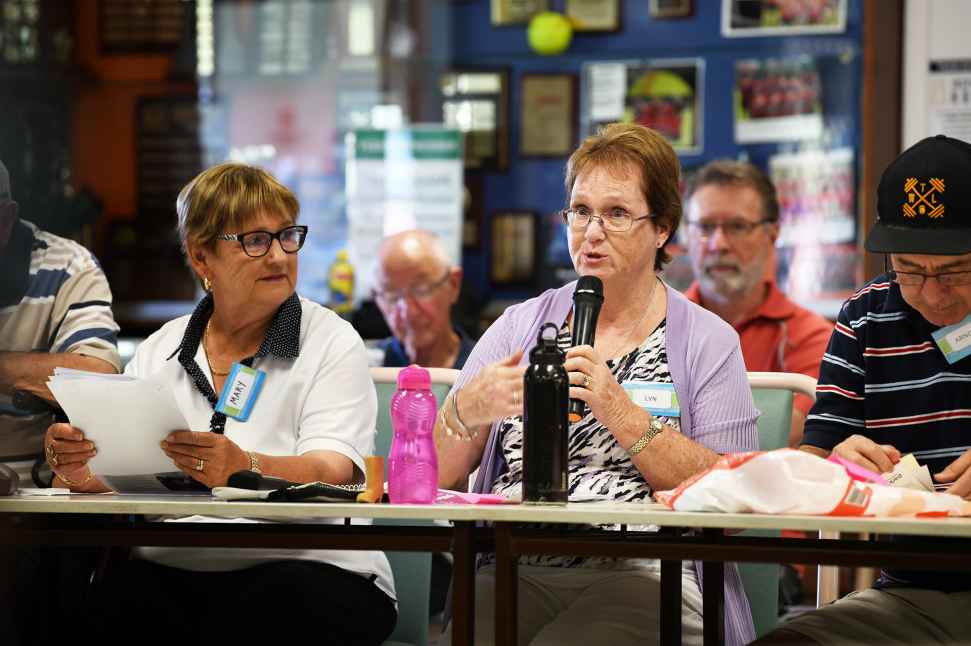
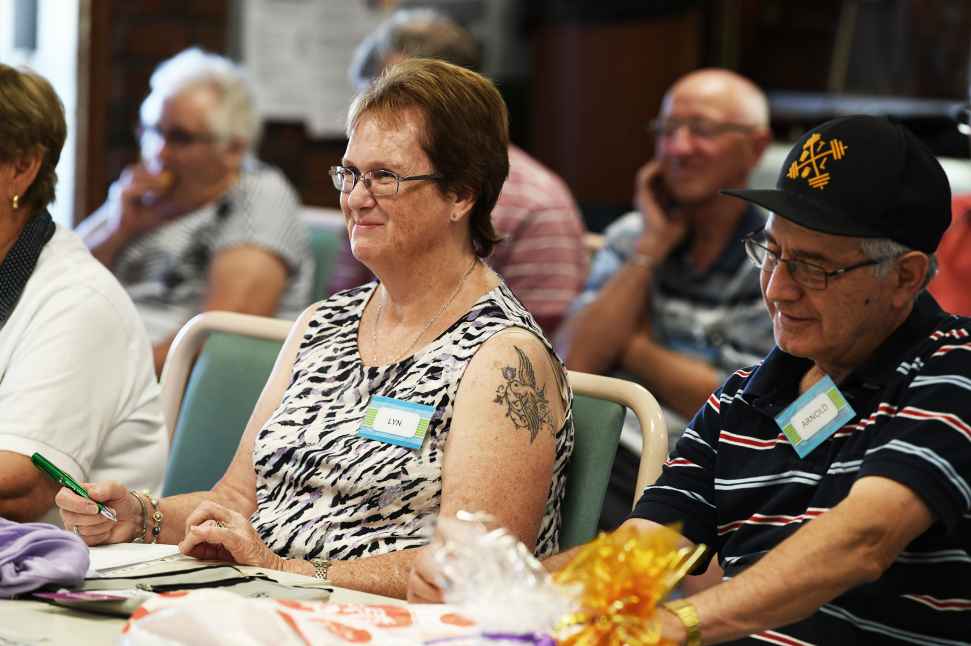
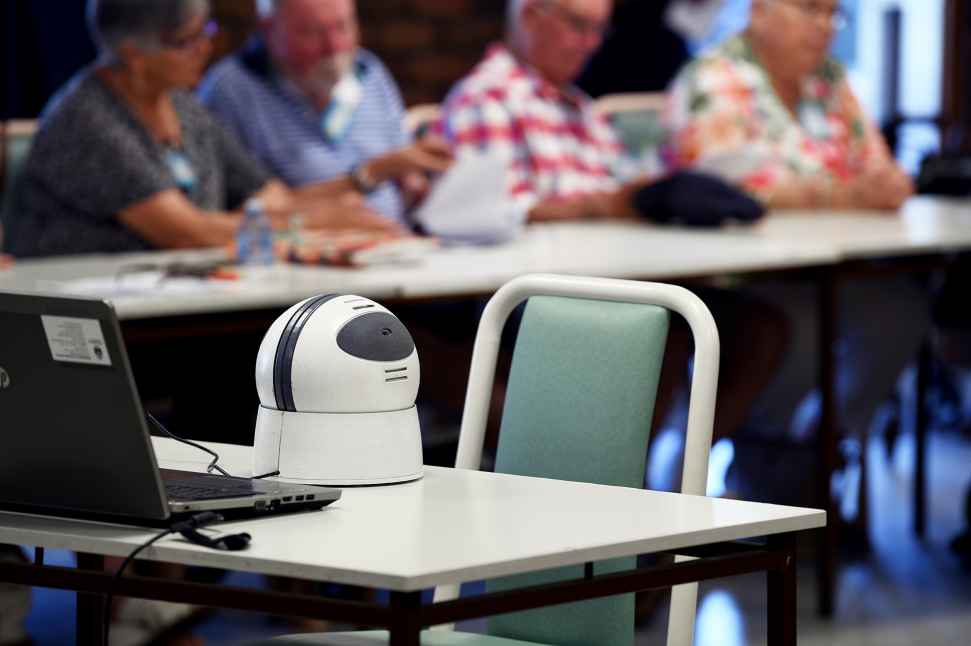
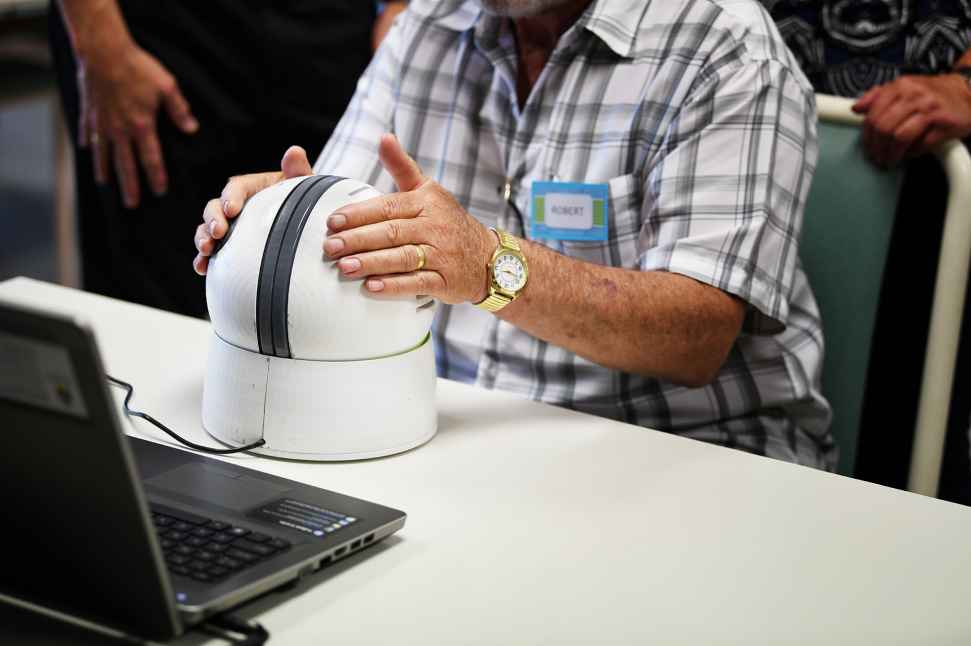
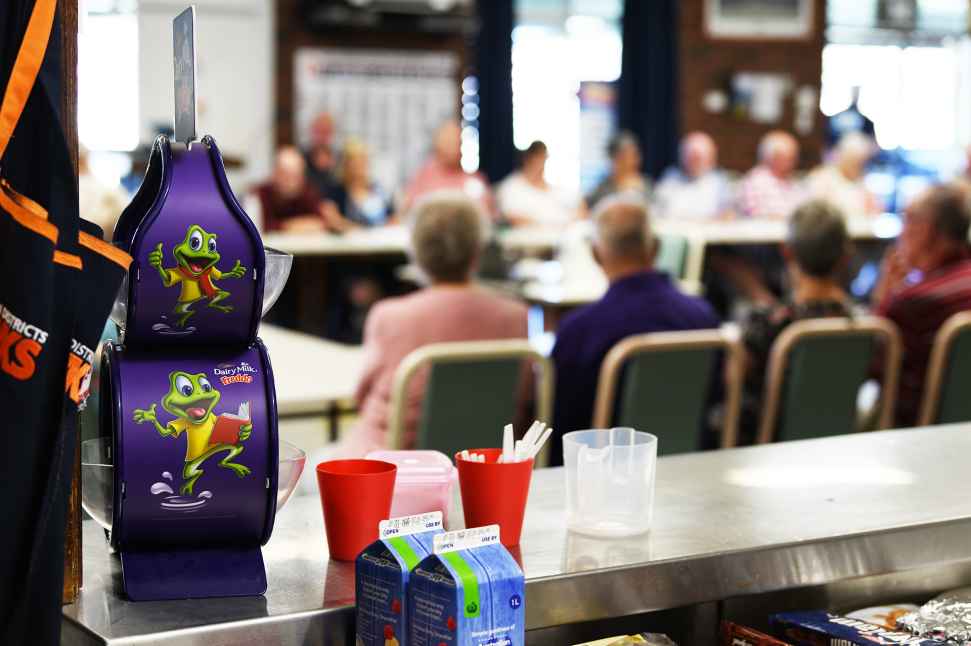
Lyn addresses a meeting of the Onkaparinga Parkinson's Group where group members were able to try their hands at the Orby controller.
Unexpected help for people with Parkinson’s
Parkinson’s is an entirely different condition from stroke or cerebral palsy. Yet David had unwittingly created the perfect device for people with a hand tremor from Parkinson’s and the haptic feedback and multi-level games help with brain plasticity. The controller, Orby, didn’t need to be altered at all because it was built with dimensions that meant a five-year-old’s hand or an adult’s hand could both use it. With a few more targeted games – designed with Parkinson’s rehabilitation needs and adult players interests in mind – OrbIT was ready for trial for people with Parkinson’s.
Lyn Paunovic was one of the first people with Parkinson’s to use Orby. Lyn is the secretary of her local Parkinson’s SA Support Group. When she first saw Orby, she thought, “Oh my God, I don’t know if I can do this.” She wasn’t used to playing games; not like her grandson. It didn’t take long—only a few minutes—before she was two levels into Marine Life, a game where you are a shark trying to eat the jellyfish and avoid the clownfish. “I totally switched off from everything around me,” she said. “It was brilliant.” While she played, she felt like her Parkinson’s faded away.
A tulip, a tattoo and the accidental engineer were all unexpected chapters of Lyn Paunovic’s journey. Read more
“I feel I have this responsibility, that if I can help that I should be helping.
And seeing how Orby can help people, is amazingly rewarding and something that
never ceases to make me smile”
—Dr David Hobbs

Parkinson’s associations around the world are recognisable by their shared use of a tulip in their logo. The tulip became the international symbol of Parkinson’s after a Dutch horticulturist who had the disease named a tulip he developed the ‘Dr. James Parkinson’. It also symbolises hope and optimism, and for Lyn Paunovic was part of the inspiration for her own tattoo.
Read more
People with Parkinson’s disease need cognition, memory and physical exercises as part of their routine. For Lyn and many others, it’s all about variety and finding what works. The OrbIT gaming system is a type of rehab that could go together with boxing, tai-chi and physiotherapy.
Lyn knew that her Parkinson’s SA Support Group would love Orby too. They meet on the last Friday of every month at the Christies Beach baseball club. In a room lined with sporting paraphernalia, Lyn’s husband, Tolley, set up the projector with the slides for that month. On a February afternoon, David and his neurologist counterpart, Lyndsey, went along. And the biggest crowd in the history of the group greeted them: 50 people lining the room in chairs and wheelchairs. Their questions peppered the air after the speech, competing with the pandemonium as others scrambled for a chance to play with Orby. The group crowded the screen, watching as the lucky player shot Xs and Os from the sky, raced around on horseback or gobbled up sea creatures.
LYN & THE ACCIDENTAL ENGINEER
![]()
Sturt Rd, Bedford Park
South Australia 5042
South Australia | Northern Territory
Global | Online
CRICOS Provider: 00114A TEQSA Provider ID: PRV12097 TEQSA category: Australian University








